Reading for pleasure is an incredibly important part of a child’s cognitive and social development. It can be done together with adults to give learners a sense of security, confidence and happiness. Reading can also help learners to relax, which is extremely important in today’s busy world.
There are few things as powerful as devoting time to reading with your learners.
Children who enjoy reading for fun are more likely to read for enjoyment throughout their lives. They are also more likely to develop a lifelong love of reading which will help them in all areas of life.
Looking for lesson ideas and resources to help in the classroom? Check out this series of activities for Alligator Pie by Dennis Lee.
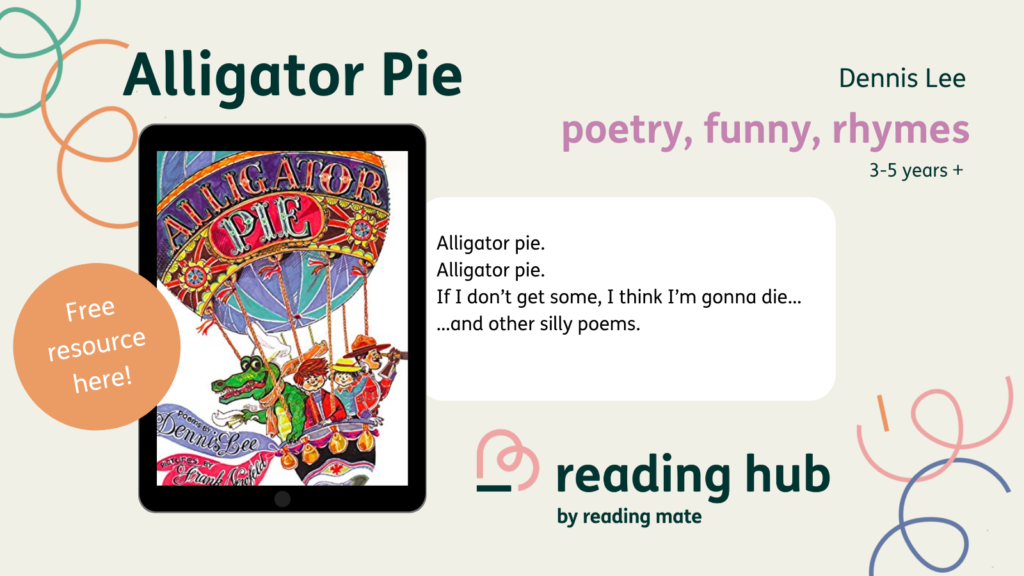
Is it important to enjoy reading?
In one report, reading enjoyment is reported as more important for children’s educational success than their family’s socio-economic status (OECD, 2002).
But shockingly, 55% of 0-2-year-olds are not read to every day by their parents (National Literacy Trust, 2020).
Children who are read to are more likely to become readers themselves. They are also more likely to read for pleasure in the future.
Surely, this is what we want for future generations.
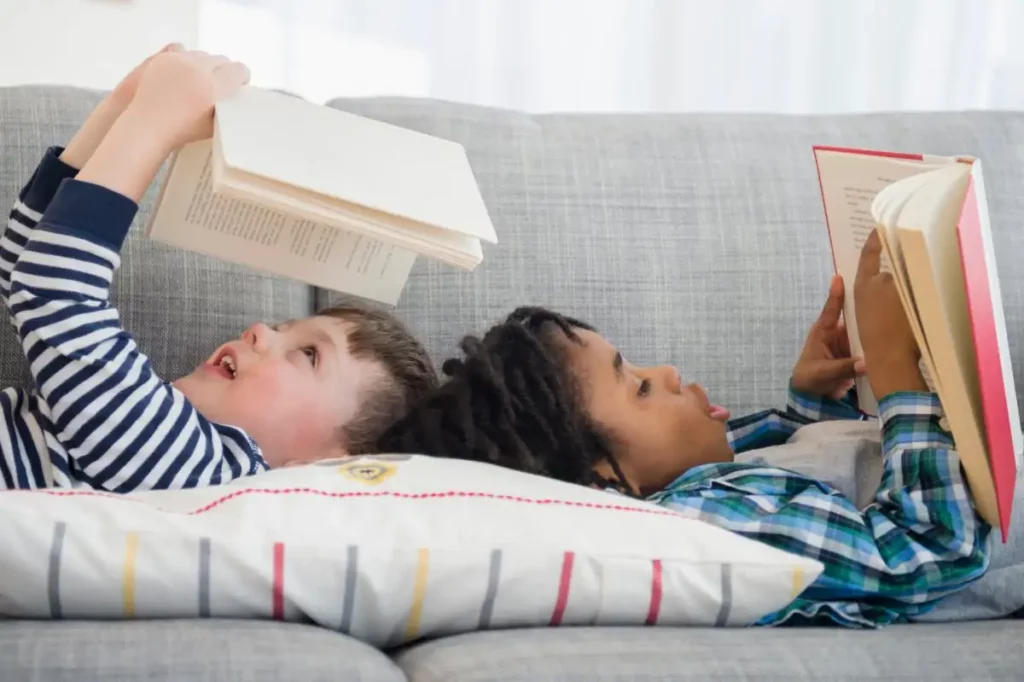
What impact does reading have on children?
Reading is an essential part of life. It connects us to other people, helps us to think and feel differently and allows us to travel without moving. Reading is also one of the main ways that we learn. It is not just about reading books and stories, it’s also about developing a lifelong love of learning.
We know the habit of reading can create life-long benefits, including:
- Developing a life-long love of learning
- Advancing vocabulary and literacy skills (being able to read with confidence)
- Opening their imaginations up to possibility and creativity by exposing them to new ideas, people, and places through stories
- Improving life chances at school and beyond (better grades, better jobs etc.)
- Better mental health & wellbeing. Being able to switch off from technology by going on a reading adventure is incredibly helpful for young minds! When your learners are able to relax after a busy day or week at school, they will be happier.
What are the benefits of reading for pleasure?
1) Reading for pleasure improves language and comprehension skills
Reading helps children develop their vocabulary by exposing them to new words and concepts. As they read more, they become more familiar with these words and concepts. This makes it easier for children to understand more complex texts later on in school.
Improvement in children’s writing, vocabulary and comprehension skills are all linked to reading for pleasure. Children who enjoy reading are also better at understanding what they read. This means they can pick up new words much more quickly than those who don’t read as often.
2) Reading helps to build empathy skills
Reading for pleasure is also beneficial for emotional well-being. Spending time with characters in stories helps children develop empathy for others. Understanding different perspectives on life situations is something we all need to be able to do.
One of the most important skills that children need to master is empathy. The development of empathy can be helped by spending time with a wide range of characters in stories. Reading also allows a child to think about how others might feel and what they might do in certain situations.
Reading about other people’s lives can make us more aware of their experiences and help us understand how others feel. This makes it easier for people to see things from someone else’s perspective rather than just our own viewpoint.
3) Reading promotes positive emotions such as joy and enthusiasm
Children who enjoy reading tend to be happier overall because they have found something they love doing! Children who enjoy reading tend to be more open-minded when it comes time for homework or school projects because they have already experienced the positive aspects of learning something new through reading!
4) Reading promotes curiosity about the world around us
Children who read regularly will want to know more about the world around them. They may wonder what other people do in other countries or how dinosaurs lived millions of years ago. They will want to ask questions and learn more about the world they live in. This will help them develop their communication skills as well as build their knowledge base!
Reading can also help young people understand difficult concepts such as death or divorce through books where they may find comfort in knowing that others have felt the same way too!
5) Reading for pleasure helps learners to achieve in school
Reading has been linked with better grades in school as well as higher levels of concentration when studying. Also linked to reading is an improved ability to pay attention and work independently without distraction. These are both skills which are essential when learning new material or working on homework!
Reading for pleasure is an factor in predicting later academic achievement. Children who read for pleasure are more likely to enjoy learning, succeed at school and achieve good levels of education. They also have higher levels of self-esteem, confidence and problem solving skills than those who do not read frequently.
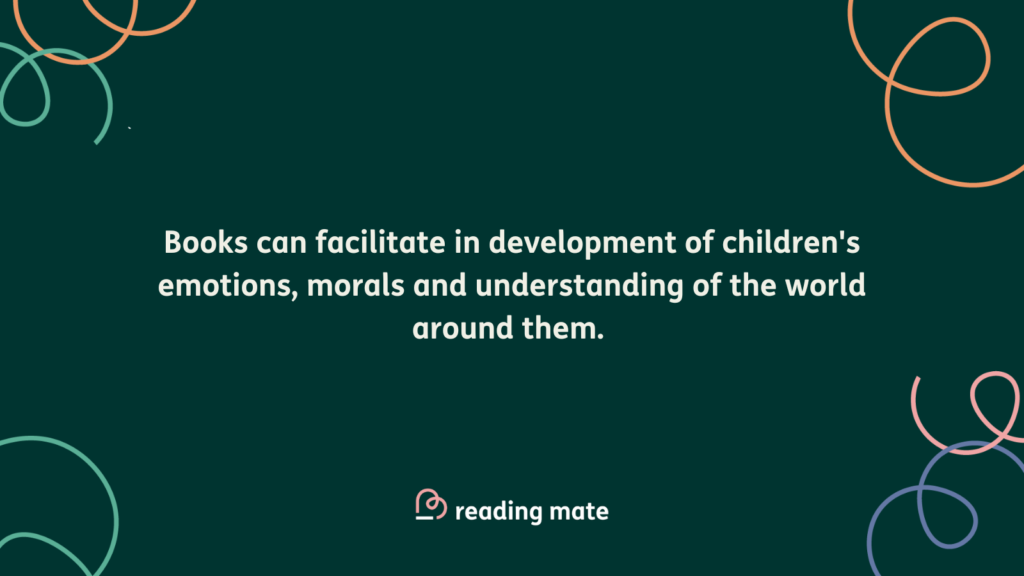
The benefits of reading for pleasure are clear: reading improves vocabulary and language skills, it builds emotional intelligence, and it teaches kids how to think critically. As a parent or educator, you want your child to be successful in school and life. Reading for pleasure is one of the best ways to support this success.
Why is reading for pleasure so important for children?
Reading helps children learn about the world around them and develop an appreciation for others’ experiences. Reading and learning to read connects learners with the world around them. When a child reads a book, they are not only learning how to read the words, but they are also exploring concepts and ideas.
Reading for pleasure is important for children because it sparks their imagination, improves their empathy and helps them learn to love learning. Reading for pleasure is also important for children because it helps them develop essential literacy skills.
Overall, reading is crucial for learning and development.
Reading is crucial for learning and development and yet many children are missing out on the joy of reading and the benefits it brings.
What are the barriers to reading at home with children?
Reading for pleasure is so important for children, but it’s often not given the attention it deserves. Why?
It’s estimated that children spend an average of seven hours per day with digital media. That’s more time than they spend sleeping or eating! And this doesn’t even include the time they spend on homework or chores. When you add all these activities together, it may feel like there isn’t much time left for reading, from the perspective of parents and children alike.
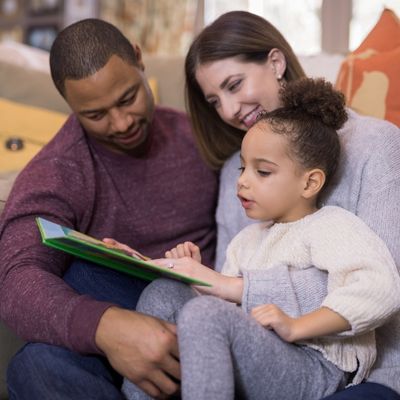
Further to this, in the United Kingdom, 1 in 11 children don’t own a book of their own, and there is a real difference between the reading habits of children from different socio-economic backgrounds. You can get your learners more access to enchanting eBooks with Reading Hub.
“Life is too busy”
In a recent survey by the National Literacy Trust, 43% of parents said they did not read enough with their children because life is too busy. Other reasons included: “I don’t know what sort of stories my child likes reading” and “finding time in our family routine to fit in regular story times together.”
Other barriers include financial issues, language, or literacy problems themselves (as reported by parents who have struggled with education), social isolation, lack of access to books at home and lack of support from partners/other carers.
What holds parents back from reading at home with learners?
- Time
There are many reasons why parents don’t read to their children at home. One reason is that some parents do not have time to read with their children as often as they would like. Many people are busy with work and other responsibilities, which make it difficult to find time to read with their children on a daily basis.
- Lack of understanding
Another reason is that some parents believe that reading aloud is only important when they have older children who can understand what they are reading. In reality, it is important for parents to read aloud with younger children so that they can begin building those foundational skills early in life.
Imagine that your child has just finished a book and wants to talk about it. What do you do? Parents might think that a learner is too young to understand what the book is about, or that he or she won’t be interested in reading. But it’s important to remember that young children are excellent listeners and can learn from their parents’ conversations about books.
- Difficulty finding relevant reading materials
Finally, some people say that if their child does not enjoy reading or if they don’t understand what they are reading then it may not be worth continuing this practice. If this happens, then it might be best for parents to try something else instead of continuing to force something that just isn’t working out for them. Every child can find a love of reading, they just need to find the right book!
How can you encourage parental engagement with reading?
One top tip to share with parents of your learners is to read with them regularly – ideally every day! Parents and carers should be encouraged to create a routine by setting aside 15 minutes each day to sit down together and read. The more time spent reading together, the more likely learners will want to continue doing it as they grow older. And if they read regularly from an early age, they’ll learn that reading is something that happens every day – which makes it easier for them to pick up a book on their own later on too!
What are some top tips for promoting reading at home?
Reading for pleasure doesn’t just happen. It needs to be encouraged and supported by adults in the home. Here are some tips to share with parents of your learners:
- Create a book nook or reading area in your home where children can go when they want to read or relax. Make sure it’s somewhere quiet and comfortable where children will feel safe and happy.
- Make sure there are plenty of books around the house – not just on their bookshelves but also on display tables or coffee tables, so that they catch their eye when they walk past them. You could even make sure there’s always a different book ready for bedtime stories each night!
- Don’t be afraid to give children books as presents – they will love them! We love giving books as gifts because they last forever and can bring hours of enjoyment.
Best books to read at home
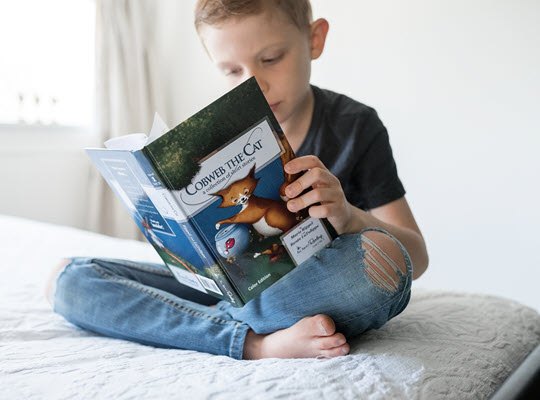
The best books to read at home with children are those that capture their imagination, introduce new ideas and worlds, and make them laugh!
Ultimately, the books must be completely tailored to the child’s interests, ability, age, and hobbies.
As children develop, the books they read will change and grow with them.
Children’s interests are diverse and can include things like sport, animals, and music. Tailoring book choices is key, but time in schools is scarce! Our Reading Hub software offers personalised recommendations for each individual learner, giving them the opportunity to build a library they love.
Why is it important to create good reading habits across home and school?
Good reading habits at home can be life-changing (which is why we developed our reading for pleasure software, Reading Hub). Children who read for pleasure are more likely to do well at school, are less likely to get into trouble with the police and have better mental health and wellbeing than those who don’t (National Literacy Trust, 2020). Linking reading at school with reading at home is one step closer to building good habits.
We must remember that life doesn’t always plan out how we want it to! Parents getting comfortable with reading together every single evening may prove challenging if family life is hectic or unpredictable. By educating and empowering parents through introducing simple routines and access to books we increase the chances of these habits being formed.
It is so important for all adults to model good reading habits in front of children. By showing your learners that you enjoy reading yourself, they will see it as a normal part of life and feel inspired by your example. Additionally, a lot of learners want to understand why something has happened, and that’s where reading for meaning can come in handy to help them understand the text.
Reading for pleasure is an exceptionally powerful habit for your learner to develop. Like all habits, it needs consistency and repetition to properly embed itself in children’s lives.
How can reading for pleasure be encouraged in a classroom setting?
Reading for pleasure is an essential part of a child’s development and is crucial in nurturing their love of learning. As a teacher, you can help create an environment where your learners are encouraged to read as often as possible.
If your learners are reading books that are too difficult for them, they may lose confidence in their abilities as readers. If they aren’t enjoying what they’re reading, this will also lead to poor engagement levels with books which can lead to a loss of motivation when it comes to reading independently. The best way to ensure that your learners are gaining the most from their reading experiences is by choosing age-appropriate texts that meet their needs as readers – but make sure there’s something for everyone in the class!
It’s important that children read books that reflect their interests. If your learners love animals but all you have in your classroom or library are picture books about trains or toys, then he or she will become bored with reading and lose interest in learning how to read.
Conclusion
To conclude, reading for pleasure is one of the most important skills that a child can learn. Reading for pleasure helps to develop their language, imagination, and creativity. It also helps children to understand more about the world around them and develop vital social-emotional skills.
Would you like to encourage your learners to read for pleasure? Reading Hub can help you!
Related articles:


